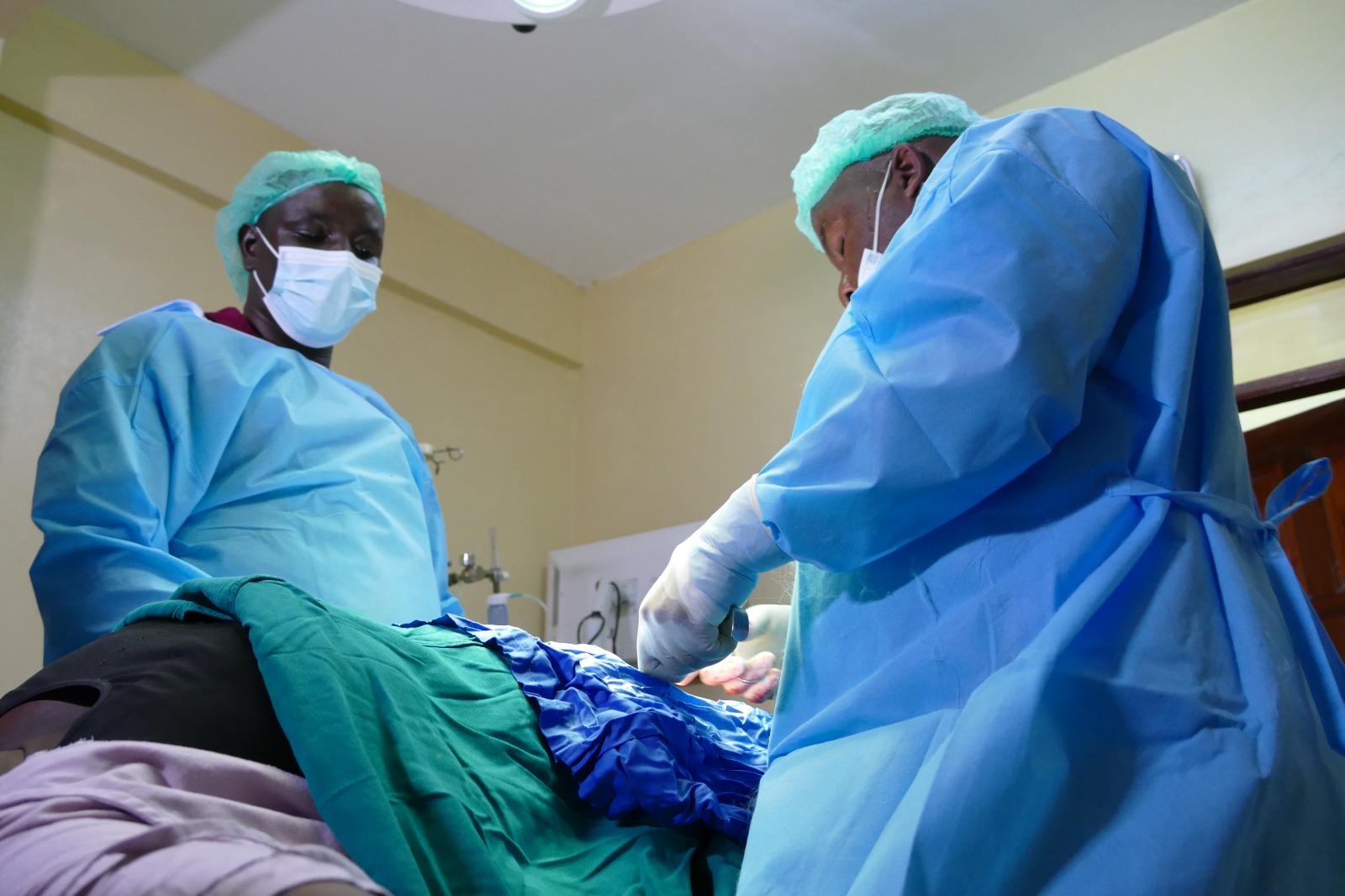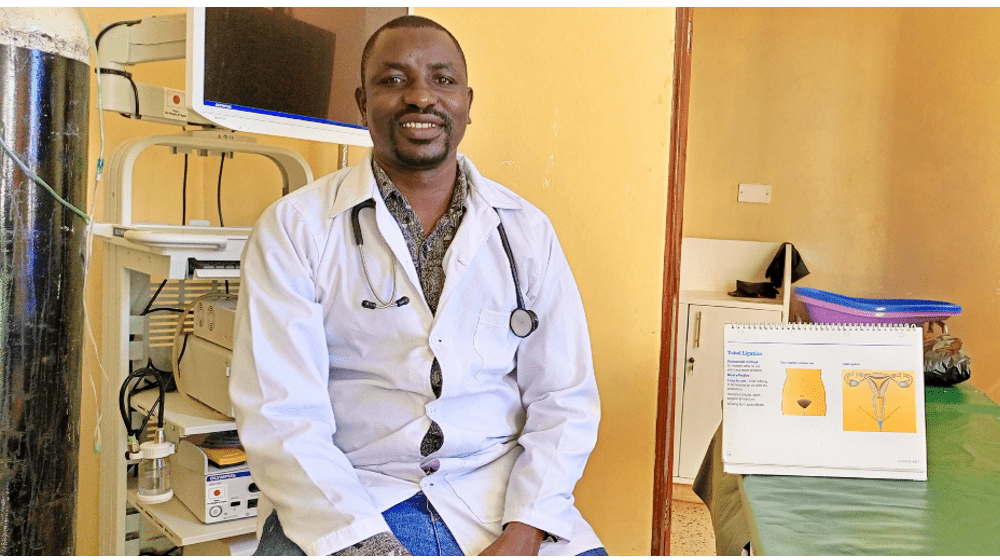“It’s a well-established fact that most maternal deaths can be prevented through proper family planning, says 35-year-old Dr. Boniface Odira. With a career spanning over nine years, he has delivered more than 10,000 babies, averaging four a day.
On most days, you will find Dr. Odera in the maternity ward, helping bring new life into the world. But when UNFPA visited the hospital in mid-November, he was busy attending to members of the public at a free family planning camp organized by UNFPA and partners. “Children indeed bring joy to a family, but having multiple births without proper spacing exposes women to pregnancy-related complications, including post-partum bleeding, which is a leading cause of maternal deaths,” he says.
As part of his work, Dr. Odira counsels women and couples on family planning, to ensure that they have the information to make the right choice regarding the number and spacing of their children. He educates clients on short and long-term contraceptives, as well as permanent family planning methods such as tubal ligation and vasectomy.
For a long time, these permanent methods were not available at the Bungoma County referral hospital, and patients had to travel two hours away to the neighboring Kisumu County to access services. Three years ago, Dr. Odira and several other doctors at the hospital underwent training offered by UNFPA partner Marie Stopes Kenya, to enhance their skills in performing both tubal ligation and vasectomy procedures. They now attend to patients seeking permanent family planning every week, bringing the services closer to those who need them.
“Most patients who take up these methods feel that they have achieved the desired family size,” says Dr. Odira. The uptake of permanent family planning is however significantly lower as compared to short and long-term methods. Dr. Odira attributes this to a lack of public awareness, myths, misconceptions, and the costs associated with the services. “Many patients cannot afford the 1,000 shillings ($6) fee, but when we have a free camp such as this one, they do turn up in large numbers,” he says During the week-long family planning camp sponsored by UNFPA, 28 women and three men were served with permanent family planning procedures including tubal ligation and vasectomy, offered free of charge.

Through the UNFPA supplies partnership, delivery of family planning commodities such as oral contraceptives, IUDs, injectables, as well as vasectomy and tubal ligation kits has been enhanced to ensure access to family planning up to the last mile in counties such as Bungoma. UNFPA has also partnered with the Ministry of Health and Marie Stopes Kenya to conduct community forums in Bungoma County aimed at raising awareness and tackling myths and misconceptions that hinder access to various family planning methods. The forums are led by healthcare workers including community health promoters who conduct monthly learning sessions on sexual and reproductive health for men, women, and young people.
“Uptake of contraception can be increased if both men and women equally take up the burden of family planning, says Dr. Odira. He encourages men to support their partners in accessing family planning, including taking up male contraception. “ When compared to tubal ligation, a vasectomy is a less invasive procedure with less downtime for recuperation,” he says. Having recently had his first child, Dr. Odira says he is looking forward to achieving his desired family size of three children, and would not hesitate to undergo a vasectomy if needed. “When the time comes, my wife and I will make the decision together, and I am ready to play my part to secure the health and well-being of our family,” he says.


